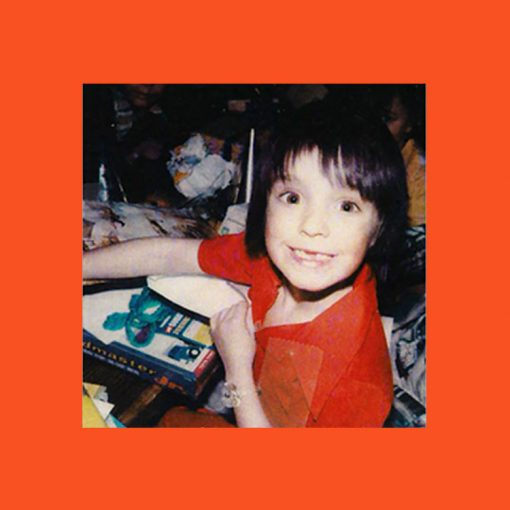The only thing worth mentioning from my next three months in Orlando was the mile and a half long walk from the recruit barracks to the student barracks where I would live while I learned how to function aboard a ship. The heavy canvas straps of my dark green seabag dug deep into the wicked sunburn on my shoulders. A gym bag in each hand held the balance of my worldly possessions but made the entire walk much more painful as everything jostled from side-to-side with every step. The sunburn was from the previous Saturday spent flirting with cute girls at a local water park, crisping my skin to a nice reddish brown. We had enjoyed two days of liberty before graduating, a final test of our ability to follow the rules without getting in trouble.
Not every company survived their first weekend of freedom intact. I finished training as the honor graduate and was advanced to Seaman Apprentice before heading to my first ship. The main benefit was no longer being on the bottom of the ladder, though stitching two stripes on all my non-dungaree uniforms as a sign of my new rank wasn’t cheap given the anemic paychecks I received every two weeks. I went home to Colorado for a couple weeks of leave before reporting to the USS Hunley (AS 31) in Norfolk, Virginia. The submarine tender rarely left port, so it wasn’t much trouble tracking it down when I was done visiting with my family.
Wide metal steps led to a platform about 15-feet off the ground holding the end of a long, metal ramp that led to the rear of the huge gray ship at a gentle grade. As I presented myself to the Officer of the Deck (OOD) at my first real Navy quarterdeck, I didn’t know my first assignment would be as a member of Deck Department’s 2nd Division and keeping this gleaming space gleaming would be part of my duties. My military ID card provided the details that were written into the bright-green logbook by the seaman assigned to the task. Everyone was dressed in the white, short-sleeved cotton “milkman” uniforms. The watch called down to the deck department to send one of their duty guys to show me to my bunk.
Seaman Fox would become one of my closest friends, but for now the affable stranger grabbed one of my bags and exited the quarterdeck through the only open door. We proceeded up the starboard (right) side and entered the ship through a heavy water-tight hatch halfway to the bow. I was quickly lost in the maze of passages and narrow ladders, but Fox eventually opened a final hatch leading to a huge room divided into sections by “coffin-racks” stacked three high to a ceiling festooned with pipes and gauges and wires and tags. Painted stencils provided a linguistic guide to the otherwise confusing mess on every available surface – diagonal, horizontal and vertical. I was shown to a dim corner near the curved wall of the bow and given a bottom bunk.
The Fucking New Guy always gets the bottom which is the worst place to live since the guys above you use your bed as a step stool. The four-inch mattress covered a lid that lifted to reveal a ten-inch deep space where we could store the bulk of our possessions. A standing locker provided just enough room for hanging uniforms, though if you were quick you could snag extra locker space as it was vacated by someone moving to a different berthing or their next command. I was unpacked in short order, climbed into my coffin and slid the dark blue curtains shut before flicking on the small florescent lamp above my head to read my latest novel. There was maybe twelve inches between my stomach and the bottom of the rack above me.
Claustrophobics don’t last long in the Navy.
I was roused the next morning by Fox as he headed to the showers, flip flops slapping on the metal deck. I didn’t own any flip flops, called “shower shoes” in the Navy, and probably should have known better from my Job Corps days where they were essential gear for the shared bathrooms. I risked the various fungi and took a shower absent protective footwear, though I would snag some at the ship’s store later that day. I ironed my dungaree uniform, paying special attention to the crisp creases on the arms and down the front. A fresh shine on my boots and I was ready for my first Navy “quarters” or the morning meeting where heads are counted and the orders for the day are distributed.
Before heading topside for quarters, I joined the end of a diverse group of men and women lined up down the narrow passages leading to the stainless steel counters where we would grab our breakfast selections from the Mess Specialists in the busy kitchen beyond. A second line for the 1st Class Petty Officers moved much quicker as rank did indeed have its privileges. This was where the “blue shirts” ate while officers and chiefs had their own messes in a different part of the ship. As a submarine tender, we ate like the sub fleet ate, which is a cut well above standard Navy chow, so my first meal aboard Hunley was actually pretty good.
The first thing every new sailor did when reporting to the ship was attend a week-long orientation program. My new karma points started kicking in almost immediately. We were asked to introduce ourselves, what department we worked in and what we hoped to accomplish during our time on the ship. I revealed my position as a deck seaman in Second Division and hope that Hunley had a ship‘s journalist I could work with. One of the second class petty officers who came after me, a pretty and perky blond, said, “I am new the ship’s journalist, JO2 Jesse Carr. I am hoping to find a striker I can train and mentor. We should talk, Jason.” Turns out her own mentor told her the first thing she should do when reporting aboard Hunley was find someone like me to help shoulder the load. Turned out to be a win-win situation for us both.
Once the class was over for the day, Jesse led me to the SITE (Shipboard Information, Training and Entertainment ) space to meet her leading petty officer, Interior Communications Electrician First Class Rodrigo Fuentes. IC1 Fuentes would teach me almost as much about being a journalist as Jesse did, including the fundamentals of being a great broadcaster by understanding the equipment. I started hanging out in the SITE room learning how to write and take photos whenever I wasn’t working in deck department or partying at the few bars within walking distance. This included the base bowling alley where I got in my first fist fight since getting thrown in jail for trading Everclear-fueled blows with a Job Corps “friend” in downtown Reno’s bus station.
Meanwhile, back in deck department, I was kicking ass and taking name. The first thing I did was complete every qualification that was open to me in record time. The bulk of that was the extensive training needed to serve on the damage control teams that respond to shipboard emergencies, mostly during General Quarters drills since a ship that rarely left pier didn’t have many actual emergencies. Then again, modern Navy ships avoid major damage control emergencies like the plague, even during wartime scenarios, so it remained true that we trained hard so we never needed the training.
I also learned the ins-and-outs of chipping paint, swabbing decks and caring for the exterior of a ship perpetually floating in seawater. We shined each and every piece of brass on a weekly basis to keep it from turning green. There is a ton of brass on a Navy vessel. Second Division was also in charge of the rear part of the ship, called the fantail, where the main anchor was operated and maintained as well as the Quarterdeck that was the main entrance to the ship when in port. Rinse and repeat for six months before I had to spend my time serving on the mess decks
I met Caleb Wilson in Hunley’s scullery, the first stop on a four-month mess duty stint that everyone under the rank of E-6 had to complete. Our job was to wash each and every dirty dish created by a ship filled with 1,200 hungry sailors eating three meals a day more days than not. We would shuttle clean dishes back to the line during meals and then dig into crusted pots just as soon as the meal was complete finishing our shift by making sure the scullery was spotless and ready to go for the next meal.
We each came from rough and tumble backgrounds with dubious male role models. I made friends more quickly than Caleb while he was more of a ladies man. The two skills were oddly divergent and non-transferable. Eager to qualify for BUDS (Basic Underwater Demolition & SEAL) after he had blown his first opportunity at Hospital Corpsman School in San Diego the previous year, he was constantly running or swimming or lifting weights when not working or partying or fucking. Caleb is also wicked smart, maybe even as smart as he thinks he is, so both of us did very well in our deck training while trying to leave the department for new, more fulfilling horizons.
Our respective Type-A personalities brought with them more than a little bit of friendly competition. From car buying to drinking to life itself, Caleb and I constantly challenged the other to do better than the day before and have been doing so for more than 22 years now. My wife Megan asked me if she thought we would have done as well had we never met. We would have both succeeded had we never become friends but most likely in a much different fashion. I probably would have stayed in the Navy for a full twenty-year career, recently retired and starting over as a 44-year-old civilian. Caleb would have still gotten out when his six-year enlistment was up since Hunley’s deck department wouldn’t release him to BUDS training and Rescue Swimmer School wasn’t a real substitute for being a Navy SEAL in the field of battle.
Mostly we tried to stay out of trouble as we spent our meager paychecks on partying and meeting girls. I lost track of the number of times we stood on the helo deck for quarters, sweaty and queasy from the prior evening’s festivities. I might have even snuck a puke or two over the side if I was feeling especially fragile under the bright morning sun. That was a neat trick since deck department formed up over the Quarterdeck and any expulsion would have been in clear view of anyone who happened to look while coming aboard.
I escaped Hunley after two years of duty with all three stripes intact, once again skirting the line between total disaster and exponential success. It was a dance I had gotten good at over the years, though someone was clearly interested in my life moving in a certain direction despite my best efforts to send it careening into the ditch. Caleb also has a self-destructive streak making his continued success all the more impressive by comparison. Neither of us were overly concerned with the potential consequences of our actions and took great pleasure in pursuing each day at full speed ahead.





